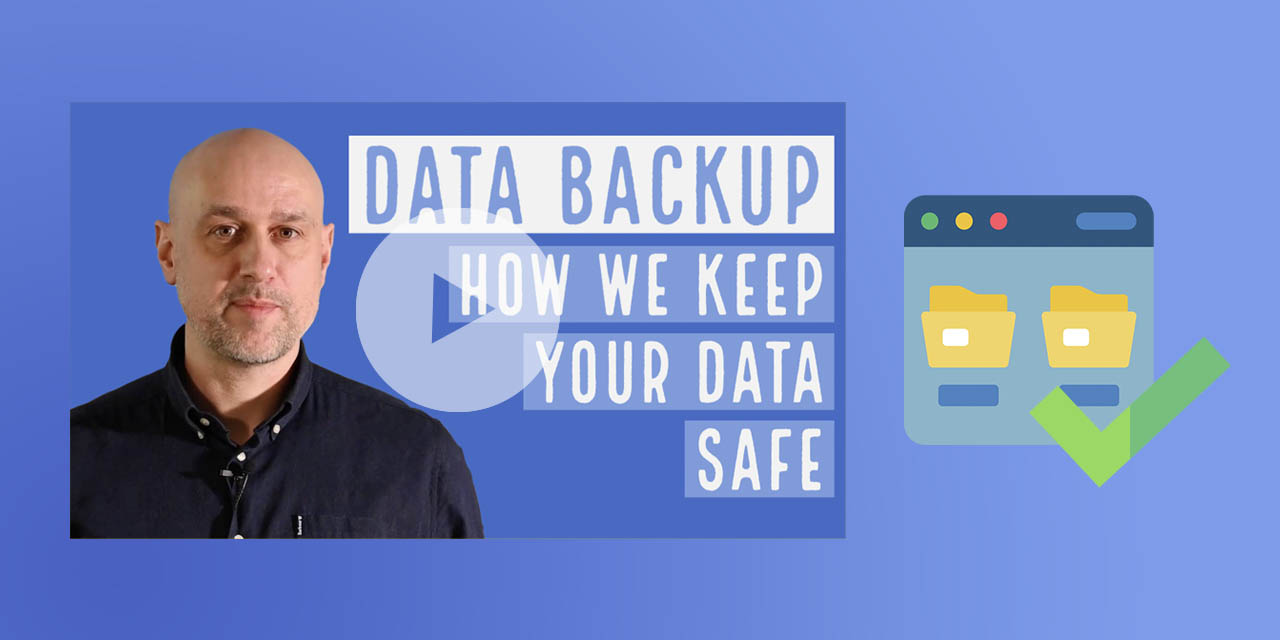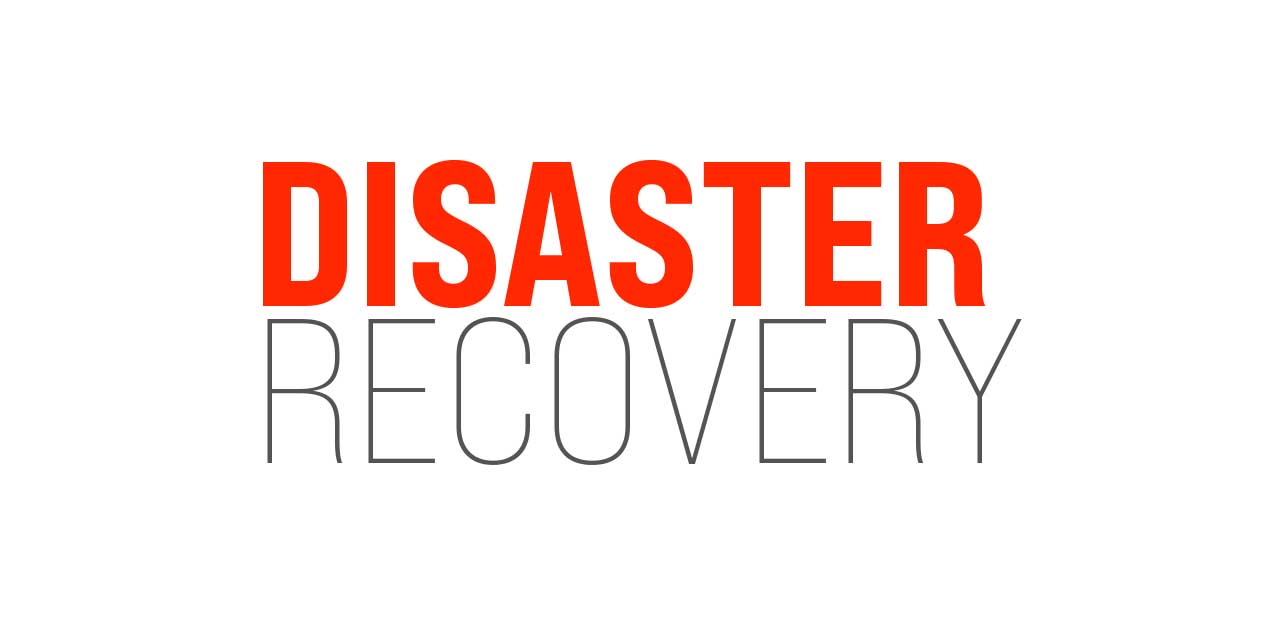1 min read
How do we backup your data?
How long could your business operate without business-critical data? Hours? Weeks? Months? If an incident occurs such as a fire, flood or ransomware,...

Data backup and recovery is a necessary safety net for businesses today. In this article, we detail the main advantages of data backup and recovery. Much time is invested in creating business data and information. Client, CRM, financials, and order information is essential in everyday business operations, while data such as intellectual property (IP), business strategy and tactics, forecasting and contractual data provide key competitive information. Lost data can lead to a business not being able to operate or having to spend a significant amount of time rebuilding databases from scratch.
The importance of data backup cannot be underestimated. A sustained period of downtime can lead to a loss of trust, clients switching suppliers, a loss in revenue, and worst-case scenario – potential bankruptcy. Lost or stolen competitive data can also eliminate a business’ competitive advantage.
Those prepared and practicing proportionate and best-in-class backup and recovery strategies will reap the following benefits:
|
The main purpose of data backup is to keep your most important information safe and avoid a catastrophic and sustained loss of data. Data backup and recovery’s primary job and advantage is to keep your most important files safe so a business can get back up and running after a data loss incident.
Many business leaders are concerned about their data backup. Any ‘what ifs’ or concerns can soon be eased if a data backup and recovery plan is implemented and tested. In the event of data loss, the recovery strategy is ready to be executed without fear of not being able to access important data.
Restoring data can be stressful and time-sensitive. Data can be restored seamlessly in the event of data loss with a well-designed and tested data backup and recovery strategy. It means there’s no hesitation or questions like ‘What do we do now?’ as it will be a matter of simply executing the plan already laid out.
In the event of data loss, the speed to recover and be ‘back to normal’ could make or break a business. When data is properly backed, important information can be restored within a short amount of time. Files such as deleted emails can be restored within minutes, and depending upon the data storage method and data size, important data and main IT systems may only take only a few hours or days to restore.
Having consistency in data backup processes will ensure the most important information is always saved. Any data backup that requires manual input can lead to human error and inconsistencies.
Data backup goes hand in hand with your data retention strategy. Knowing what your important data is, but also considering what data should be automatically deleted is often equally important. It will ensure you adhere to GDPR legislation – deleting data when necessary - and also prevent the need to purchase extra storage space. For example, it is good practice to automatically delete emails after 7 years to reduce file storage requirements.
A data backup strategy demonstrates a company's due diligence. The security risks associated to supply chains mean that prospect clients expect high data handling and security standards today. It is important that client data is kept safe, but also, to be able to continue delivering your service should there be an incident.
It is most ideal to already have a partnership formed with a data backup supplier if you do not have the in-house know-how or capacity. They will already know your IT infrastructure, where your data is located and what your recovery plan is, making data retrieval much smoother.
Now consider the time it takes to select a supplier. It’s typically weeks if not months to vet a new IT support partner, let alone the new IT supplier to understand your IT infrastructure. If a partnership is not already formed prior to an incident, the search for an external supplier is forced and done in haste.
HMRC requires businesses to keep financial records for 6 years or longer in certain circumstances. In the event of a disaster and important data being permanently lost, you may be fined if you cannot produce the correct documentation. HM Revenue will not be sympathetic that you have lost important information.
Many businesses fail to truly plan and test their data recovery plan. In the event of a wide-spread disaster, such as a supply chain cyberattack, those businesses with a disaster recovery plan will survive and thrive. The first company in your sector that’s ‘back in business’ could steal customers from those still recovering.
If an employee purposely deletes files, they can be easily recovered with data backup. Emails are often deleted to cover tracks, while disgruntled employees can delete other important documents. Data backup and recovery enable a business to protect itself again an insider threat or employee misdemeanors.
Do you know how much downtime costs your business? If an incident occurs, having the right backup in place to quickly restore operations will dramatically reduce downtime cost. Lost revenue and lost end-user productivity can cost a small business thousands of pounds every hour. We see it time and time again that businesses with data backup and recovery are typically operational again within hours, while businesses without may take months to recover.
According to a Gartner study, businesses without a backup and recovery plan have only a 6% survival rate following a disaster. 94% of businesses were no longer operating within two years after a disaster. Here are some reasons why:
Having data backup is good cybersecurity practice. A data backup and recovery strategy will provide the best chance of business survival and longevity.
Included in our managed IT service is data backup and recovery. Be confident that your data is safe and retrievable in the worst-case scenario when you partner with us. Find out how we backup data in our blog.
If you are considering a new IT support partner to help your business secure data backup and recovery, then do not hesitate to get in touch.
|

1 min read
How long could your business operate without business-critical data? Hours? Weeks? Months? If an incident occurs such as a fire, flood or ransomware,...

2 min read
It’s now more important than ever to have a regular backup and a disaster recovery plan for your data. Here are five reasons why all businesses, no...

3 min read
Do you ever worry that your email has been hacked and your data breached? Cyber attacks make global news headlines on a weekly basis; Hackney Council...